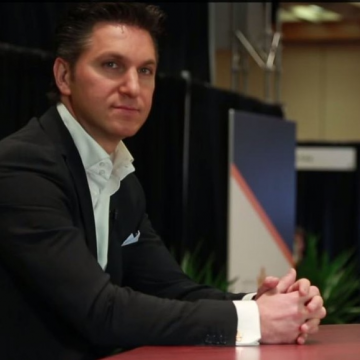
As he sits and waits for some indication as to what the prosecution will do with the case, attorneys for former Amaya Gaming Chief Executive Officer David Baazov are making moves on their own. Because of the myriad of delays that have come up in the case, the barristers for Baazov have filed motions to have the case dismissed due to the delayed due process.
According to the Toronto Globe and Mail’s Nicolas Van Praet, Baazov’s attorneys introduced a motion into the Quebec courts back in October, alleging that the delays in the case are not allowing for “timely justice” for their client. In that motion, Baazov’s legal team has said that constant delays in receiving evidence from the Autorité des Marchés Financiers (AMF), the Canadian equivalent of the U. S.’s Securities and Exchange Committee (SEC), have made it impossible to continue with the case due to the “tardy disclosure of evidence” to the defense team. The motion from the defense will be heard on December 11, the date that the trial for Baazov is set to begin (and, with the setting of the hearing of the defense motion on the day the trial is set to begin, it is likely it will be denied).
The case regarding Baazov has been going on for more than a year and, if you are to go back to when the case began, the case has been going on for several years. Last year, the Canadian Supreme Court ruled that Canadian citizens have the right to “timely justice,” setting an 18-month deadline between the filing of charges against a defendant and the beginning of the trial in a courtroom. According to the Globe and Mail, more than 200 cases have been dismissed because they exceeded this suggested period of time.
If the “Jordan Ruling” (the moniker given to this judicial decision) were applied in the Baazov case, that 18-month period would have expired. Baazov, along with two accomplices, was charged by the AMF in March 2016 with 23 counts of insider trading. That case came from the 2014 sale of the #1 online poker room in the industry, PokerStars, which Baazov was involved with.
In 2014, Baazov and the Scheinberg Family were able to negotiate a $4.9 billion purchase of the company, but what the AMF is interested in are the actions of Baazov and his accomplices leading up to that sale in July. When news leaked in April 2014 that Amaya Gaming and the Scheinbergs were in discussion of a sale, the Amaya Gaming stock rocketed up the Toronto Stock Exchange. Between April 2014 and June 2014, the stock price went from roughly $4.50 per share to $22 per share, a massive increase that caught the attention of the AMF.
Moves by Baazov to take Amaya Gaming private in 2016 sparked the moves by the AMF. With the potential of having the company move out of their purveyance, the AMF struck in March 2016 with the litany of charges against Baazov. Initially Baazov looked to remain as the CEO of Amaya Gaming but, after an uprising from the Board of Directors of the company, he resigned his position in August 2016 (the company has since moved on, literally, moving the company headquarters from Toronto to Montreal and renaming themselves The Stars Group).
Since that time, the AMF has been sifting through the voluminous trove of evidence they have as they look to process their case. Although the initial Amaya/Scheinberg transaction for PokerStars was originally where their attention was concentrated, the Globe and Mail state that there is a new angle that the case is headed in. This is, according to the prosecutors in the case, the reason for the delays in moving forward.
The Globe and Mail states that a hard drive was found under the intriguing name of “Project Bronze,” which reportedly indicates that there was a kickback scheme between Baazov and his brother, Josh (also known as Ofer). This discovery allegedly revealed that David Baazov was, in fact, NOT the head of Amaya Gaming but was acting as a proxy for Josh, who had allegedly run afoul of online sports betting laws in the U. S. previously.
Although the trial is set to start on December 11, it could be held up by the motions from the defense. It could also be held up by the massive “Project Bronze” discovery, which the defense has said could take them six months to work through (the defense only received the evidence in September). Odds of a plea bargain are slim and it appears it will be a rather ugly affair when David Baazov heads to trial in a couple of weeks.















